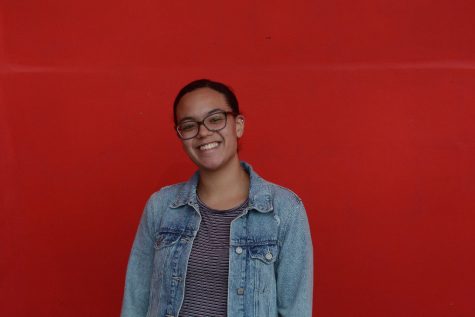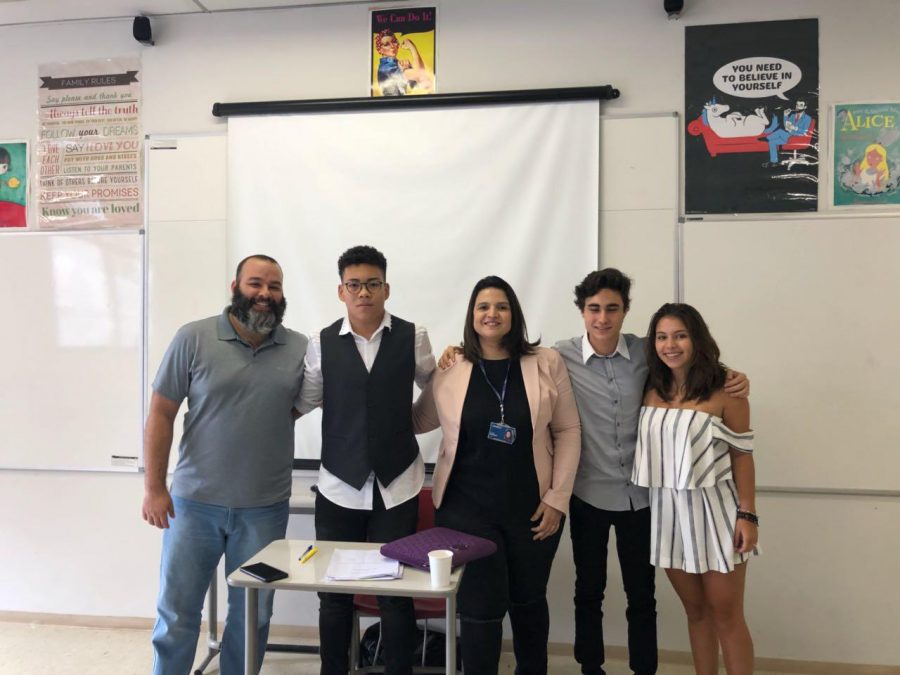Have No Fear! Your Extended Essay Survival Guide Is Here!
Are you worried about your Extended Essay? Are the directions from administration and teachers not clear enough for you to understand? Or are you struggling with figuring out what it actually is? No need for fear! The Senior Class of 2019 is here! … to answer all your questions about the EE! The Talon asked three seniors to talk about the EE experiences and give the future seniors (hopefully) a clear idea of the entirety of the EE.
The Talon: First off, what is the EE in your words?
Vidisha Sharma: “[…] the Extended Essay is an academic opportunity for students to deeply research a topic of their choice, hopefully, something they are fascinated by, and attempt to convert their readers into “stans” of their topic […].”
Chloé Cortez: “An opportunity for high school students to practice, with a subject of their choice, the type of academic writing expected from them, in college […]”
Guilhermo Gonzalez: “My EE is an economic concentrated and center EE. However, I was able to bridge gaps and connections to other areas that interested me like, political science, government intervention and long term vs. short term consequences from our actions.”
TT: What are your opinions on the EE?
VS: “It provides a great opportunity for students to explore topics or phenomena in which they have great interest and passion, but may simultaneously demotivate or discourage them from other things. I feel as though students must have this chance, not only to write about the first thing thrown at them but exclusively for their interests. I’m not too sure of the significance of it in life.”
CC: “I personally am DEFINITELY not a fan of the EE. It supposedly helps students for what they will be doing in college, but some students may not benefit at all from it. For example, I intend on going to a liberal arts college, and learning how to formulate a portfolio would have been infinitely better for my college prep than an essay. However, I believe it can be very helpful to a student who wants to study subjects that are very based around writing in college, as it helps them comprehend the level of difficulty they will be expected to work with.”
GG: “It does not, in fact, take much time if you are organized, it is great and valuable learning that brings you insight to Capstone college works for example.”
TT: What could the juniors do to make the most out of the mentor? (How can they use their mentor to help them in the process as much as possible?)
VS: “I personally didn’t consult my mentor more than was absolutely necessary, but even then, he was immensely helpful in guiding the flow of my essay and assisting me in deciding which sources to consider analyzing.”
CC: “Ask them as constantly as possible about whether or not you’re on the right path. Sometimes your writing and your ideas may not be on the level of analysis and comprehending it should, and it may take quite a bit of brainstorming to reach the depth you want out of it, and it’s a lot more difficult to change to this path when you have gotten through a large chunk of your essay.”
GG: “If you set dates with the counselor ahead of time with certain out of door goals, then the individual can be more productive and keep him/herself in check with dates. As he/she needs to have this accomplished before the first meeting.”
TT: What was the hardest part?
VS: “Starting and actually assembling enough ideas to form a coherent analysis and have some contribution to my topic outside of simple reiteration of what hundreds of others have already said.”
CC: “Editing after the panels. The general comments you get from the teachers and students may be of great help, but may also leave you conflicted about what to change. For example, at the same time that a panelist may warn you about how you tie your ideas together, another may think it’s better if you change your research question to something more fitting of what you have now, and once you edit you may have to choose whose advice to follow.”
GG: “Finding reliable and accurate data, where you can have a critic and structured analysis.”
TT: What was the best part?
VS: “Both researching and the panels. I enjoyed reading about my topic and trying to piece together events like a puzzle to form my thesis, as well as receiving feedback for my work. Other perspectives always bring new content to the table.”
CC: “Turning it in. The feeling of relief that overcame me overpowers anything I felt since I signed that IB contract.”
GG: “The panels are the best part. They situate you among other essays so you know where you are compared to your peers and other candidates and also offers valuable feedback from new fresh people.”
TT: Any advice for the panels?
VS: “The more panels you sit in and observe, besides your own, the more advice you find applicable to your own essay. Improvement can be generalized.
CC: “Keep an open mind to the feedback the panelists have and record it with your phone to check it again if you feel you missed something in your notes. Also, try to sit through as many panels as possible, they will help you come up with questions you may not realize you had as well as have a feeling of what you need to know about your own essay ahead of time (like how well you connect your analysis to your research question).”
GG: “Record and come prepared with at least 90% of your essay done. You want to exhibit your best piece of writing in order to achieve higher grade bands. Don’t choose panelists who are your friends, but instead, pick those that will be critical and have insight into the concentration. The more feedback, the better.”
TT: Any advice for the EE process as a whole?
VS: “Start. Now.”
CC: “Get it started as soon as possible, don’t wait until counselors are telling you to think of a topic/outline/advisor.”
GG: “Be organized and do your best. Mediocrity is awarded meager grades.”
TT: Any concluding remarks?
VS: “I’ll be coming around to make sure all you all have finished your essays.” ?
CC: “In case all else fails: pray.”

Going into her senior year, this is Brianna’s first year in the Talon as a Features writer. She is thrilled to be a part of the team! Brianna is known...









